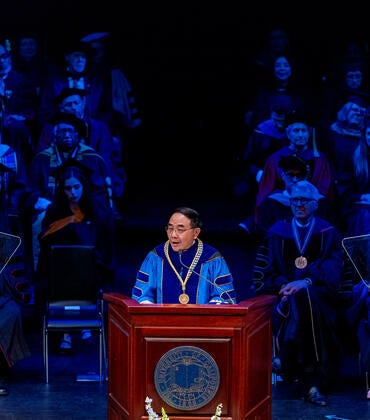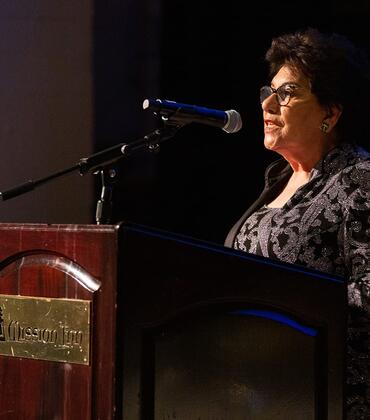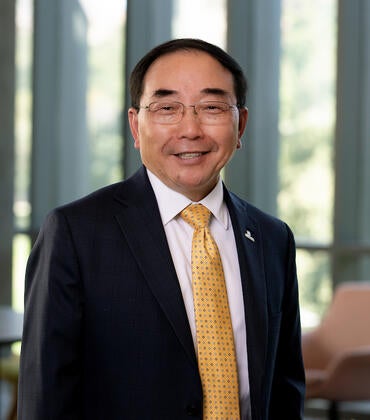The University of California has allocated more than $4.85 million in state funding to support California adults wanting to complete their college degrees or obtain a certification.
UC Riverside and UC Davis have formed an innovative partnership, dubbed the UC Degree Completion Program, developed by the University of California Reengagement Consortium, or UCRC, a four-campus collective that also includes UC Santa Barbara and UC Merced.
The initiative serves two populations: UC students with incomplete degrees, also known as “stop-outs” who left between 2008-2020, and California residents with some college and no degree attainment. During the first two years, the initiative is looking to support nearly 800 students. The program is a strategy of UC’s 2030 Capacity Plan, which aims to increase UC enrollment by 23,000 students over the next eight years.
The UC Degree Completion Program aims to reengage adults through the UCR University Extension, UC Davis Continuing and Professional Education, along with UC Santa Barbara Professional and Continuing Education, and UC Merced Extension. The Santa Barbara and Merced campuses had previously launched the degree-completion program.
Having four campuses now work toward one goal amplifies the reach and allows students to continue their education either online or in person, depending on the options available at each respective campus.
“Students who qualify may receive financial assistance for application fees and may be eligible for federal financial aid once they are readmitted to a UC campus,” said Marie C. Martin, director of academic quality, integrity, and assessment at UCR University Extension. “This program is two-fold: On one hand, we want to reduce the number of students who are dedicating their time and resources to an education, and not walking away with a degree. Secondly, we want to connect them with educational opportunities that advance their career outcomes and improve their prospects in life. The goal is to be part of the solution.”
Susan Catron, dean of UC Davis Continuing and Professional Education, said she is proud that UC Davis is among the program partners.
“The UC Degree Completion Program will empower adult learners,” Catron said. “We are going to provide very real support as people take initiative to continue their education, complete their degree, and forge their future.”
The program aims to support working professionals, unemployed, and underemployed adults, and to address specific barriers by helping with application fees, providing advising support, and alleviating challenges associated with familial and professional obligations, Martin said.
“Nationally, graduation rates continue to be a significant problem. But over the last ten years, UCR successfully increased graduation rates while decreasing differences along racial and socioeconomic lines,” said Elizabeth Watkins, UCR provost and executive vice chancellor. “Helping those who didn’t complete their degrees, whether they attended UCR or other institutions, seems like the next logical step in student success leadership.”
According to a recent survey by the National Student Clearinghouse Research Center, California has the greatest number of stop-outs in the United States: over 6.3 million and a full 17.5% of such adults in the United States.
According to UCR’s student data analysis, 6,030 students who were in an undergraduate program between 2008-2020 left UCR in good standing but did not complete a degree. This included both first time freshmen and transfer students who come from under-represented minorities, 4,592 (76%), and first-generation students 2,901 (48%). The effort will complement other retention and reengagement strategies the campus is pursuing, aimed at those impacted by the COVID-19 pandemic via a Higher Education Emergency Relief Fund, or HEERF, grant.
UC Davis proposes to establish a reengagement/reentry campaign focused on degree stop-outs from 2009 to 2018 who have completed 60 quarter units of instruction with at least a two-quarter lapse in their studies. The UC Davis campaign will target 3,862 students in good standing, including 1,716 (44%) first generation students and 1,095 (28%) under-represented students.
The two-year $4.85 million originates from the 2019 State budget. Although students can elect to complete a certificate from the entire portfolio of qualifying certificate programs, UC leaders have identified critical programs offered by UCR and UC Davis. These programs will be expanded to serve more learners on the assumption that some learners, such as those whose careers were disrupted by the pandemic, may be seeking jobs in demand, including:
- UCR: Teacher education specializations (ethnic studies, transitional kindergarten/early childhood, special education), homeless support specialist, forensic nursing, community health worker
- UC Davis: Pre-health, construction management, accounting principles, front end web development
The funded work of UCSB and UC Merced for workforce development will be further supported through the consortium’s community of advisors, operations sharing and program sharing models.
“I’m thrilled that we received these funds from the State of California to support our educational attainment efforts,” said Kevin Vaughn, UCR University Extension dean. “Through our collaboration with multiple campuses, we will be able to serve students most in need throughout the state of California.”
Interested candidates can explore what each campus has to offer:
- UC Riverside: UCR University Extension or can contact Marie C. Martin, director of academic quality, integrity, and assessment at UCR University Extension, at mmartin@ucx.ucr.edu.
- UC Davis: UC Davis Continuing and Professional Education
- UC Merced: UC Merced Extension
- UC Santa Barbara: UC Santa Barbara Professional and Continuing Education
Media inquiries for UC Davis:
Julia Ann Easley
News & media relations specialist
jaeasley@ucdavis.edu
530-752-8248



